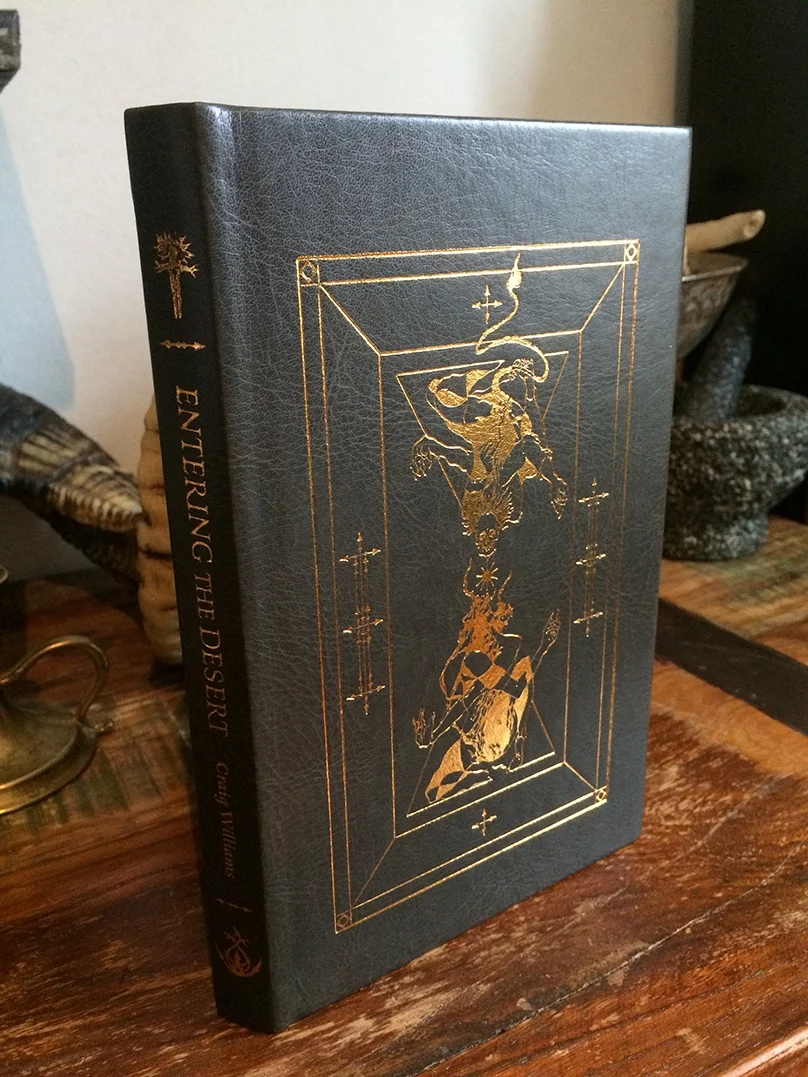Book Review : Craig Williams - Entering the Desert (2017)
Order Entering the Desert here
Important things have their own way of finding me. If I get in the way while chasing illusory pursuits, good things happen to me. It's not something I can explain, but it's a bizarre, organic process I've learned to trust over the years. Craig Williams' non fiction esoteric self-discovery book Entering the Desert was literally put in my hands by someone who had known me for a couple hours only. It's the kind of occurrence that's sacred to me. I knew then it was for a reason. And I was right, this book was a major positive experience for me and I'm going to talk about it whether you think I've lost my damn mind or not.
This is going to be a very personal review.
Craig Williams begins his book by explaining the thinking behind his book. The desert is a metaphor for the soul. Not that comforting, immortal piece of your individuality that lives on after your shuffle off your mortal coil, but that self-aware connection with the self that most people spend their lives trying to avoid. For Williams, the soul is the motor of great transformation if the subject (or the desert gnostic like he calls them) is ready to fsurrender itself to it and face the difficult emotional challenges that comes with it. I would say the language Craig Williams uses is esoteric, but his discourse is very Jungian. So it also has a metaphorical value, from which under lies a powerful argument.
And Williams builds on that powerful argument right away by challenging its audience and questioning the value of imagination in the modern world. He boldly states that imagination is keeping the great majority of people prisoner of solipsistic fantasies, rather than empowering them. I don't know about you, my own imagination is something I've been praised for since a very young age and, at 35 years old, it's the first time I read someone second guessing it. I live for that sort of challenge to my perspective. That leads to the heart of Craig Williams' argument: entering the desert of the soul involves connecting with five different realms of one's own reality (corporeal, physical space, conditioned perception, accumulated experience and emotions) in order to gain awareness and control over them.
Craig Williams doesn't take the easy way out here and gives the reader a series of ways to help connect with the five realms in the second chapter, which he called the Cell. I'll leave you to discover what these exercises/rituals are, but I'll tell you something: it works. I've noticed myself change since applying the teachings of that book. I'm having these moments where I can exert control on things I used to do automatically like browsing social media on my phone or aimlessly refreshing my work email. I'm having these "epiphanies" where I'm able to pull away from the self I am on autopilot and self-consciously devote time and effort to constructive pursuits. I mean, this is not effortless but it's a powerful paradigm shift nonetheless.
I know it doesn't sound very esoteric. There is a section at the end of the book, which is called the desert grimoire, which was full of material I wasn't ready to hear. But the foundation of Craig Williams' desert of the soul theory lies in connecting the material with the immaterial. The intangible, if you will. The part of the self that is not governed by material guidance and therefore aware of the immaterial. Entering the Desert requires an open mind and a certain dissatisfaction with twenty-first century existence in order to properly consider, but it will lead you down a different path and offer you a new perspective on things. I understand you're not reading this site in order to get spiritual enlightenment and I'll be back to regular programming tomorrow, but Entering the Desert was a powerful experience for me and I thought you should know.






